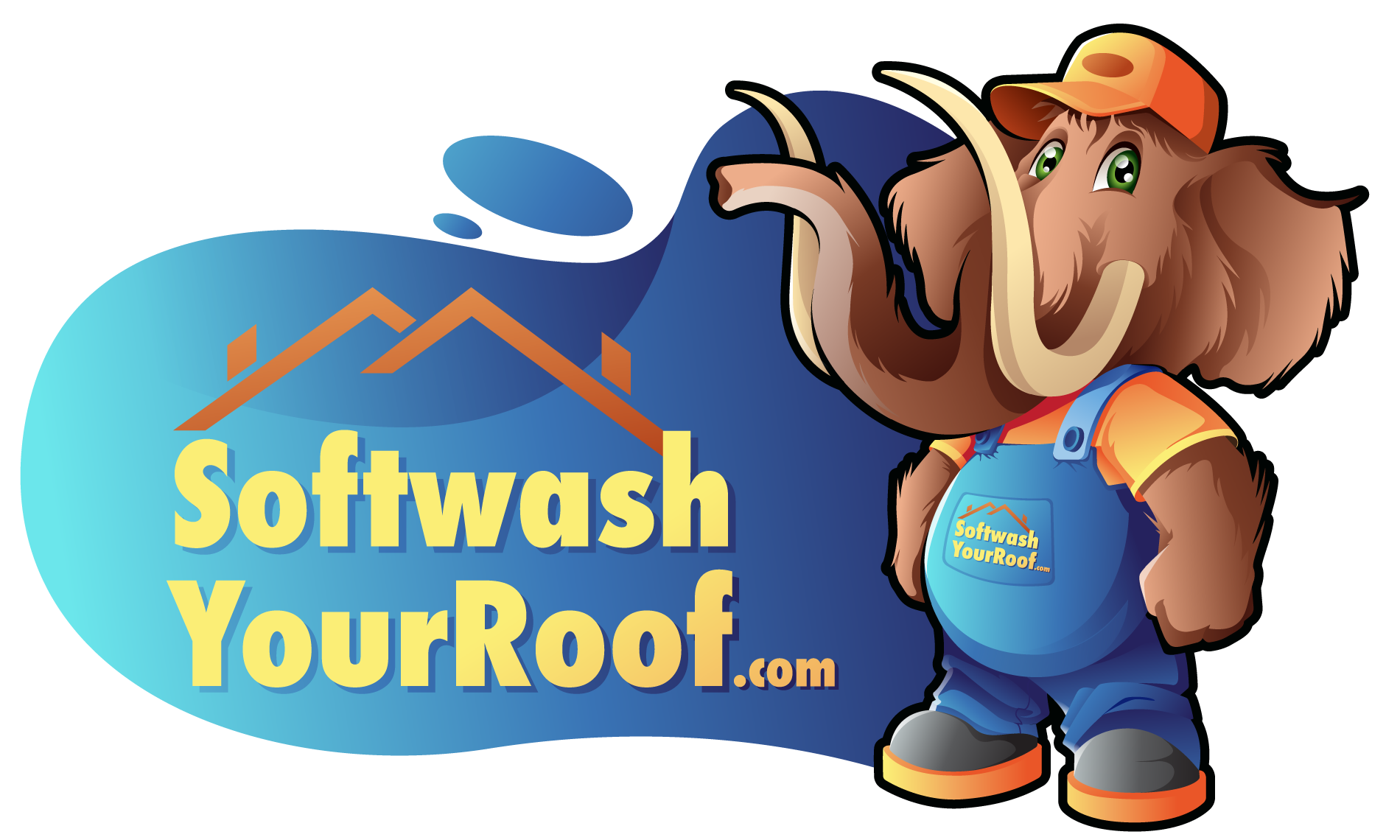Soft Washing vs. Pressure Washing: Which Cleans Better in Humidity?
Introduction
- Overview of Home Exterior Cleaning: Briefly introduces the importance of maintaining a clean home exterior.
- Purpose of the Blog: Explain the aim of comparing soft vs pressure washing to help Miami homeowners make informed decisions.
Key Takeaways
- Surface Suitability: Soft washing is ideal for delicate surfaces like roofs and siding. While pressure washing is best for hard surfaces like driveways and patios. Contaminant Removal: Soft washing effectively removes and prevents the regrowth of organic contaminants. Meanwhile, pressure washing excels at removing tough grime and stains.
- Climate Adaptation: Miami's humid and warm climate makes soft washing suitable for combating mold, mildew, and algae.
- Cost and Efficiency: Professional services offer expertise and efficiency but at a higher cost. While DIY can save money but requires proper handling and equipment.
- Safety and Environment: Soft washing is gentler and more environmentally friendly. While pressure washing requires careful handling to avoid damage and excessive water use.
By considering these key points, Miami homeowners can make the best decision for maintaining their home’s exterior, ensuring both beauty and longevity.
Understanding Soft Washing
- Definition and Process: Explain what soft washing is and how it works.
- Benefits of Soft Washing: Discuss the advantages, such as being gentle on surfaces and effectively removing mold, algae, and mildew.
- Ideal Uses for Soft Washing: List the types of surfaces and situations where soft washing is most effective (e.g., roofs, siding).
SE understanding Pressure Washing
- Definition and Process: Describe what pressure washing is and how it works.
- Benefits of Pressure Washing: Highlight the benefits, such as removing tough stains and grime and being ideal for hard surfaces.
- Ideal Uses for Pressure Washing: List the types of surfaces and situations where pressure washing is most effective (e.g., driveways, decks).
Comparing Soft Washing and Pressure Washing
- Effectiveness: Compare the effectiveness of both methods in various cleaning scenarios.
- Safety and Environmental Impact: Discuss each method's safety concerns and environmental considerations.
- Cost Comparison: Provide an overview of soft and pressure washing differences.
Miami's Unique Climate Considerations
- Impact of Miami's Climate: Explain how Miami's humid, tropical climate affects the growth of algae, mold, and mildew on home exteriors.
- Choosing the Right Method for Miami Homes: Discuss why one method might suit Miami’s specific climate.
Professional Services vs. DIY
- Pros and Cons of Hiring Professionals: Outline the benefits and potential drawbacks of hiring professional cleaning services like Softwash Your Roof.
- DIY Considerations: Discuss what homeowners should consider if they decide to do it themselves, including equipment needed, safety precautions, and potential challenges. For instance, when using pressure washing, wearing protective gear such as goggles and gloves is essential to prevent injuries from high-pressure water. Similarly, when using soft washing, ensure proper ventilation to avoid inhaling the cleaning solution's fumes.
Making Your Decision
- Factors to Consider: Summarize key factors homeowners should consider when choosing between soft and pressure washing.
- Expert Recommendations: Offer expert advice and industry standards to guide Miami homeowners' decision-making process, making them feel supported and informed. Conclusion: Encourage homeowners to assess their specific needs and make an informed decision to keep their Miami homes looking their best.
This outline provides a structured approach to cover all relevant aspects of soft washing and pressure washing, tailored to the needs and considerations of Miami homeowners.
Understanding Soft Washing
Definition and Process
Soft washing is a cleaning method that uses low-pressure water combined with specialized solutions, to safely remove mildew, bacteria, algae, and other organic stains from roofs and other building exteriors. Unlike pressure washing, which relies on high-pressure water to clean surfaces, soft washing uses biodegradable chemicals that effectively break down dirt and contaminants.
The process begins with the You start by application of the cleaning solution to the surface. This solution typically contains sodium hypochlorite, water, and surfactants that work together to break down the grime. The solution dwells on the surface, it is rinsed with low-pressure water. Leaving the surface clean and sanitized without causing any damage.
Benefits of Soft Washing
One of the primary benefits of soft washing is its gentleness on surfaces. The low-pressure water ensures no risk of damage to delicate materials such as roof shingles, painted surfaces, or older brickwork. This makes soft washing an ideal choice for preserving the integrity and appearance of your home.
Additionally, the cleaning solutions used in soft washing are highly effective in killing and removing organic growths like algae, mold, and mildew. These contaminants are unsightly and cause long-term damage to your home’s exterior. By eliminating these harmful organisms, soft washing helps to extend the life of your roofing, sand other exterior surfaces.
Soft washing is also environmentally friendly. The biodegradable solutions used in the process are safe for plants, pets, and people. This means you can achieve a clean, beautiful home without compromising your family's or the environment's health.
Ideal Uses for Soft Washing
Soft washing is particularly suited for cleaning surfaces prone to damage from high-pressure water. Some of the ideal uses for soft washing include:
- Roofs: Soft washing is perfect for removing algae, moss, and lichen from roof shingles without causing damage.
- Siding: Whether your home has vinyl, wood, or stucco siding, soft washing can effectively clean and sanitize it without the risk of stripping paint or damaging the material.
- Fences: Wooden and vinyl fences can benefit from soft washing to remove dirt, mold, and mildew, keeping them looking fresh and new.
- Decks and Patios: Soft washing can clean composite and wood decks without splintering or causing surface damage.
- Outdoor Furniture: Patio furniture, mainly made of delicate materials, can be safely cleaned using soft washing.
By choosing soft washing for these areas, homeowners can ensure a thorough and gentle cleaning that maintains the beauty and longevity of their home’s exterior.
Understanding Pressure Washing
Definition and Process
Pressure washing uses high-pressure water to remove dirt, grime, mold, and other contaminants from various surfaces. A motorized pump that generates a powerful stream of water directed through a hose and nozzle to clean surfaces efficiently.
Adjusting to different pressure levels, allowing users to tackle various cleaning tasks. High pressure can blast away dirt for adamant stains or heavily soiled areas. Use lower pressure settings for more delicate cleaning tasks. Pressurized Water is sprayed onto the surface, dislodging and washing away contaminants quickly and effectively.
Benefits of Pressure Washing
Pressure washing has the ability to tackle tough stains and heavy grime buildup. The high-pressure water stream is powerful enough to remove stubborn dirt, mold, mildew, and even old paint.
Pressure washing is also highly efficient, making quick work of large cleaning projects. For homeowners looking to clean big areas like driveways and sidewalks pressure washing can save significantly in effort compared to manual scrubbing or lower-pressure methods.
Pressure washing is versatile. Adjusting the pressure settings and using various nozzles and attachments, pressure washing can be customized to suit different cleaning needs. This makes it suitable for multiple surfaces.
Ideal Uses for Pressure Washing
Pressure washing is particularly effective for cleaning hard, durable surfaces that withstand high-pressure water. Some of the ideal uses for pressure washing include:
- Driveways and Walkways: Pressure washing can effectively remove oil stains, dirt, and grime from concrete and asphalt surfaces, restoring their appearance.
- Decks and Patios: Pressure washing can remove built-up dirt and mildew from wooden and composite decks and stone and concrete patios, making outdoor spaces look fresh and inviting.
- Fences: Pressure washing is ideal for cleaning metal and wooden fences and removing dirt, algae, and old paint to prepare surfaces for refinishing if needed.
- Siding: Soft washing is preferable for more delicate siding materials. But pressure washing can be used on sturdier surfaces like brick and stone to remove heavy stains and buildup.
- Outdoor Furniture and Equipment: A pressure washer can quickly and effectively clean metal and plastic outdoor furniture and garden tools and equipment.
Homeowners pressure washing can achieve a deep and thorough clean, ensuring that their home’s exterior surfaces look their best and are well-maintained.
Comparing Soft Washing and Pressure Washing
Effectiveness
When comparing the effectiveness of soft and pressure washing, it’s essential to consider the type of dirt and the cleaned surfaces.
- Soft Washing: Soft washing is highly effective for removing organic growths like mold, mildew, algae, and bacteria. The specialized cleaning solutions used in soft washing clean the surface and sanitize it, preventing the regrowth of these contaminants. This method is particularly effective on sensitive or easily damaged surfaces.
- Pressure Washing: Pressure washing removes tough, ingrained dirt, stains, and grime. The high-pressure water stream can quickly blast away dirt from hard surfaces like concrete, brick, and metal. It is particularly effective for cleaning driveways, sidewalks, and heavily soiled areas where a more aggressive approach is needed.
Soft washing is best for delicate surfaces and organic stains, while pressure washing is ideal for harsh, durable surfaces and stubborn grime.
Safety and Environmental Impact
Safety and environmental considerations are crucial when choosing between soft and pressure washing.
- Soft Washing: Soft washing is generally safer for your home’s exterior surfaces because it uses low-pressure water, reducing the risk of damage. The cleaning solutions used in soft washing are biodegradable and environmentally friendly. Making this method safer for plants, pets, and the environment. Ensure the chemicals are applied and rinsed correctly is essential to avoid potential harm.
- Pressure Washing: While highly effective, pressure washing can pose risks if not done correctly. The high-pressure water can damage delicate surfaces, strip paint, and even etch wood or concrete if the pressure is too high. Using the appropriate pressure settings and maintaining a safe distance from the surface being cleaned is crucial. Pressure washing uses a significant amount of water, which can lead to runoff and potential contamination if cleaning chemicals are used.
Soft washing is generally considered safer for the environment and your home’s surfaces, while pressure washing requires careful handling to avoid damage and environmental impact.
Cost Comparison
Soft washing cost versus pressure washing can vary depending on several factors, including the size of the area to be cleaned, the extent of dirt and stains, and the job's complexity.
- Soft Washing: Soft washing typically involves specialized cleaning solutions and may require more time to apply, allowing the chemicals to work effectively. This can make soft washing slightly more expensive than pressure washing, especially for large or heavily stained areas. However, the long-term benefits, such as preventing the regrowth of mold and algae, can offset the initial costs.
- Pressure Washing: Pressure washing is generally faster and can cover large areas quickly, which might make it more cost-effective for specific tasks. Damaging surfaces during the process canmaking it more expensive in the long run. DIY pressure washing can be cheaper if homeowners have the necessary equipment and know-how, but hiring professionals ensures safety and effectiveness. While soft washing may have a higher upfront cost, its effectiveness in preventing future growth and its safety benefits can make it a worthwhile investment. Pressure washing might be more cost-effective for large, harsh surfaces but requires careful handling to avoid additional expenses.
Miami's Unique Climate Considerations
Impact of Miami's Climate
Miami's tropical climate is high humidity, frequent rainfall, and warm temperatures. Which creates the perfect environment for the growth of algae, mold, and mildew. This climate accelerates the buildup of organic contaminants, making regular exterior cleaning an essential part of home maintenance.
- High Humidity: Miami's persistent humidity provides the moisture necessary for mold and mildew to thrive.
- Frequent Rainfall: Regular rainfall contributes to the accumulation of dirt and grime on exterior surfaces. It also keeps surfaces damp, leading to faster algae and mildew growth. Warm temperatures create an ideal environment for the proliferation of various types of organic growth, which can quickly spread across surfaces if not properly managed.
Miami homeowners must choose a cleaning method that effectively addresses these specific challenges to maintain their homes' aesthetic and structural integrity.
Choosing the Right Method for Miami Homes
When deciding between soft and pressure washing for your Miami home, it's essential to consider how each method performs under the city's unique climatic conditions.
- Soft Washing: Soft washing is particularly effective in Miami's climate because it targets the root causes of organic growth. The cleaning solutions used in soft washing kill mold, mildew, and algae at their source, providing a longer-lasting clean. This method is ideal for surfaces prone to these types of growth, such as roofs and siding. Additionally, soft washing's gentle approach ensures that the cleaning process does not damage delicate materials. Making it a safer choice for homes with older or more fragile exterior materials.
- Pressure Washing: Pressure washing can be beneficial for quickly removing dirt and grime that accumulate due to frequent rainfall. It helps clean hard surfaces like driveways, walkways, and patios, which can handle the force of high-pressure water. However, pressure washing may be less effective in preventing the regrowth of mold and algae since it primarily removes surface contaminants without addressing the underlying cause.
Soft washing is generally the better choice for combating the city's high humidity and organic growth issues on delicate surfaces. Pressure washing remains valuable for maintaining hard surfaces and removing dirt and grime. By understanding the strengths and limitations of each method, homeowners can make an informed decision that best suits their needs in Miami's unique climate. ### Section 5: Professional Services vs. DIY
Pros and Cons of Hiring Professionals
When hiring professional or tackling the job yourself, several factors must be considered, each with its advantages and disadvantages.
- Pros of Hiring Professionals:
- Expertise and Experience: Professionals have the knowledge and experience to handle different surfaces and stains effectively. They understand the appropriate techniques and solutions required for various cleaning tasks.
- High-Quality Equipment: Professional services use commercial-grade equipment that provides superior cleaning power compared to typical consumer-grade options. This ensures a more thorough and efficient cleaning.
- Safety: Professionals are trained to use the equipment safely and effectively, reducing the risk of damage to your property or injury to yourself. They also know how to handle cleaning solutions responsibly, minimizing environmental impact.
- Time-Saving: Hiring professionals save time and effort, allowing you to focus on other essential tasks. They can complete the job more quickly and efficiently than a DIY approach.
- Cons of Hiring Professionals:
- Cost: Professional cleaning services can be expensive, especially for large or complex jobs. Homeowners need to weigh the cost against the benefits of a professional clean.
- Scheduling: You may need to accommodate the cleaning service's availability, which can sometimes be inconvenient.
DIY Considerations
If you prefer a hands-on approach, doing it yourself can be a viable option. However, it's essential to consider the following points:
- Pros of DIY:
- Cost Savings: DIY cleaning can be more cost-effective, especially if you own the necessary equipment or rent it reasonably.
- Flexibility: You can work on your schedule and tackle the cleaning project at your convenience.
- Satisfaction: Completing a home maintenance task can be a sense of accomplishment.
- Cons of DIY:
- Learning Curve: There is a learning curve to using pressure washers and applying soft washing solutions correctly. Incorrect usage can damage your property.
- Safety Risks: Handling high-pressure equipment and cleaning chemicals without proper training can pose safety risks. Protective gear and caution are necessary to avoid injury.
- Equipment Limitations: Consumer-grade equipment may not be as powerful or effective as professional-grade tools, potentially leading to less satisfactory results.
- Time and Effort: DIY cleaning can be time-consuming and physically demanding, especially for larger areas or heavily soiled surfaces.
Hiring professionals offer expertise, efficiency, and safety, though it comes at a higher cost. DIY cleaning can save money and provide flexibility but requires careful consideration. Homeowners should assess their skills, project scope, and budget when deciding.
Making Your Decision
Factors to Consider
When deciding between soft washing and pressure washing for your Miami home, consider the following factors:
- Surface Type: Delicate surfaces like roofs, painted siding, and older brickwork are suited for soft washing. While hard surfaces like driveways, walkways, and patios benefit from pressure washing.
- Type of Contaminants: Soft washing effectively cleans organic growths such as algae, mold, and mildew, whereas tough grime and stains are better handled by pressure washing.
- Climate Considerations: Miami's humid, rainy, and warm climate promotes the growth of organic contaminants, making soft washing an ideal choice for preventing regrowth.
- Budget and Time: Hiring professionals ensures high-quality results and saves time but is more expensive. DIY can be cost-effective but requires time, effort, and proper equipment handling.
- Safety and Environmental Impact: Soft washing is gentler on surfaces and environmentally friendly, while pressure washing requires careful handling to avoid damage and excessive water use.
Expert Recommendations
Based on expert opinions and industry standards, here are some recommendations:
- For Roofs and Siding: Soft washing is killsorganic growth without damaging delicate materials.
- For Driveways and Patios: Pressure washing efficiently removing stubborn stains and dirt from hard surfaces.
- For Routine Maintenance: Consider using soft washing to regulate your home's exterior to prevent buildup and regrowth of contaminants.
- For Deep Cleaning: Utilize pressure washing for occasional deep cleaning of durable surfaces to keep them fresh and free of tough stains.
Conclusion
Cleaning your Miami home involves assessing your specific needs, the type of surfaces you need to clean, and the nature of the contaminants. Soft washing offers a gentle, effective solution for delicate surfaces and organic growth, making it ideal for Miami's climate. Pressure washing provides powerful cleaning for tough grime on hard surfaces. Whether you decide to hire professionals or take the DIY route, understanding the benefits and limitations of each method will help you make an informed decision to keep your home looking its best.
Frequently Asked Questions (FAQs)
1. What is the main difference between soft washing and pressure washing?
Answer: The main difference lies in the water pressure and cleaning approach. Soft washing uses low-pressure water and specialized cleaning solutions to remove organic growth and sanitize surfaces. Pressure washing uses high-pressure water to blast dirt, grime, and stains from hard surfaces.
2. Which method is better for cleaning my roof in Miami?
Answer: Soft washing is the preferred method for cleaning roofs in Miami. It removes and prevents algae, mold, and mildew regrowth without damaging the shingles or other roofing materials.
3. Can pressure washing damage my home’s exterior?
Answer: If not done correctly, pressure washing can damage delicate surfaces such as painted siding, older brickwork, and wood. It’s essential to use the appropriate pressure settings and techniques to avoid causing any harm.
4. How often should I softwash or pressure wash my home in Miami?
Answer: The frequency depends on your home’s specific conditions. Soft wash your roof and siding every 1-2 years to prevent organic growth. Pressure washing is done annually or as needed for driveways, walkways, and other hard surfaces to maintain their appearance.
5. Is soft washing safe for the environment?
Answer: Soft washing is environmentally friendly when using biodegradable and eco-friendly cleaning solutions. These solutions are safe for plants, pets, and people, making soft washing a green choice for exterior cleaning.
6. Can I do soft or pressure washing or hire a professional?
Answer: Both methods can be DIY projects with the right equipment and knowledge. Professionals ensure the job is done safely and effectively, especially for more complex or delicate cleaning tasks. Professionals also have access to commercial-grade equipment that provides superior results.
7. How can I decide between soft and pressure washing for different home areas?
Answer: Consider the type of surface and the nature of the contaminants. Soft washing is ideal for delicate surfaces and organic growth (e.g., roofs, siding), while pressure washing is best for hard surfaces and tough grime (e.g., driveways, patios). When deciding, consider Miami’s climate and your home's specific needs.






17 Comments
Comments are closed.